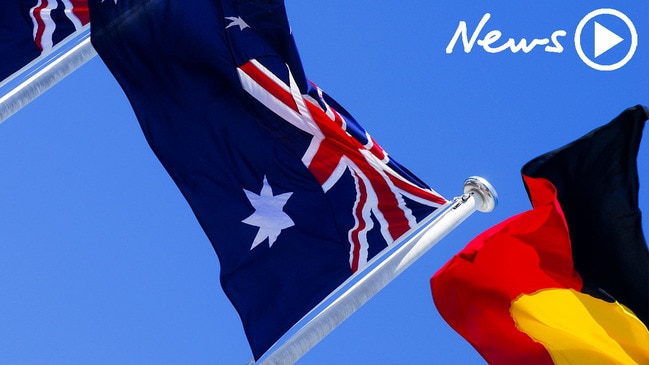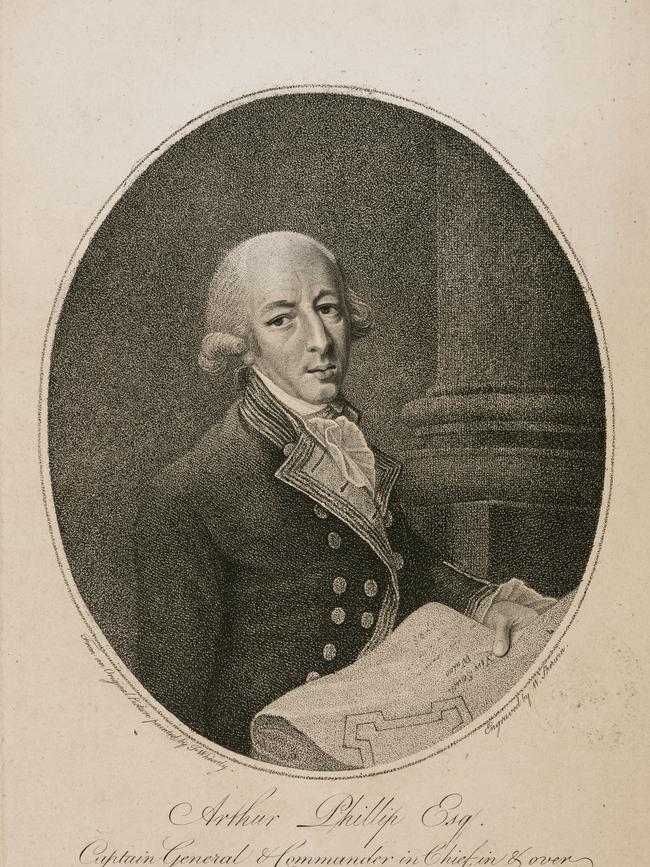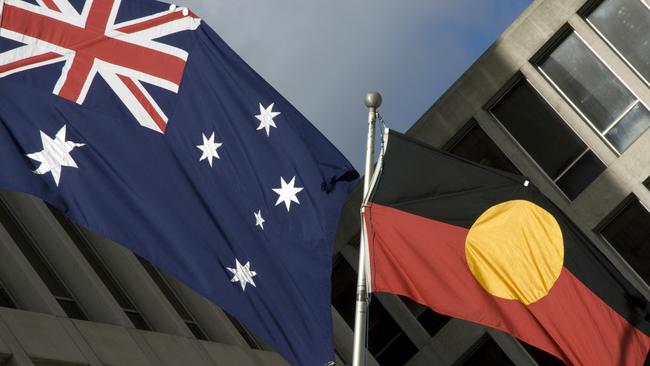Theo Theophanous: A treaty would be better than a date change
January 26 is not Invasion Day. It is the first expression of Welcome to Country by Australia’s Aborigines. But we do need to right old wrongs and the best way is a treaty with indigenous Australians, writes Theo Theophanous.

Opinion
Don't miss out on the headlines from Opinion. Followed categories will be added to My News.
Here’s a radical thought. Australia Day is not Invasion Day. It is the first expression of Welcome to Country by Australia’s Aborigines. That welcome occurred on January 26, 1788, when the First Fleet arrived at Sydney Cove.
There was no fighting, no killing, no armed invasion, no massacres as claimed by “change the date” activists.
No, it was the relatively benign arrival of a fleet of 11 small ships that had left Portsmouth, England, in May 1787.
THREE-QUARTERS WANT TO KEEP AUSTRALIA DAY DATE
RITA PANAHI: DATE WON’T CHANGE REALITY
WARREN MUNDINE: CHANGING DATE IS NOT MY PRIORITY
In an incredible maritime achievement, they travelled 24,000km to reach Australia with all 11 ships completing the journey. Of the 1420 souls who left England, 1373 made it here alive, but they were in poor health and hungry; 732 convicts, including 189 women, banished from their own country arrived on Australian shores.
They were in some respects similar to today’s refugees, sent here as an alternative to spending years in a crowded London prison. There were about 200 marines, some with wives and children, on this First Fleet — that’s hardly an invasion force — and their main job was to control the convicts.
The first two years were characterised by mostly friendly relations with the Aborigines who traded with and helped to feed the starving settlers. At that time, governor Arthur Phillip ordered that the indigenous peoples should be well treated.
The rewriting of history to somehow paint the First Fleet as invaders has very little historical merit, although it is true that, a couple of years after the first landing, relations went sour and local conflicts followed.

In subsequent years many wrongs were committed against the Aborigines — as well as some attempts to right those wrongs.
But it is wrong to characterise January 26, 1788 as Invasion Day given that the new arrivals, at least initially, experienced a kind of welcome to country.
JEFF KENNETT: NEW DATE WILL HELP US BUILT TRUST
They were not invaders — many were women and children who had suffered terribly at the hands of British justice. But the early settlers and the British authorities failed in one crucial respect. They did not negotiate a treaty with the Aborigines that recognised their claim to the land and provided terms for sharing the land. That was a major factor that contributed to the many years of mistreatment and neglect.
Even today many of our First Peoples remain undereducated, underemployed, poorly housed, face enormous social inequality and have high suicide rates. Aboriginal leader Warren Mundine has recently stated that these issues should be prioritised over any change to Australia Day — which he supports. Let’s hope his comments are unrelated to Liberal Party attempts to preselect him for the marginal seat of Gilmore.

It is not a change to Australia Day that is needed. It is a treaty that includes concrete steps to address the economic and social disadvantages of Aboriginal Australians. The Andrews Labor Government has initiated such a process in partnership with Aboriginal people in Victoria. It should now be made a priority at the federal level with the aim of declaring a national treaty, which I think should be ratified on Australia Day 2020, 232 years since the First Fleet arrived.
Surely all Australians can get behind and celebrate an Australia Day that completes what should have been done more than 200 years ago: a treaty for righting past wrongs.
We should reject the attempts by those seeking to gain political advantage by attenuating victimhood within our Aboriginal communities using a warped interpretation of history.
Those falsehoods play on the belief shared by many Australians that there is still an injustice that should be addressed. But by condemning the Aboriginal community to eternal victimhood, they are engaging in the worst kind of identity politics designed to divide rather than unite.

Thankfully, many Aboriginal leaders like Stan Grant and many I have met at the Aboriginal Advancement League reject this kind of victim-based anti-patriotic identity politics.
Those leaders know symbolic acts like changing Australia Day or feigned respect for elders past, present and emerging at meetings will not right past wrongs. A properly negotiated treaty with accompanying concrete actions will. And such a treaty should be declared on the most symbolic of all days: Australia Day.
I feel privileged to be part of this Australian story along with so many others from around the world who now make up our multicultural mix. And I feel proud of the thousands of years of history of the original peoples of this land as much as of my own European history and background.
We should all recognise that we need a treaty benefiting Aboriginal Australians. It would formalise the Australian story of people from all over the world coming together, being welcomed by an ancient culture and forming a great nation.
Theo Theophanous is a former Victorian Government Minister and political commentator


